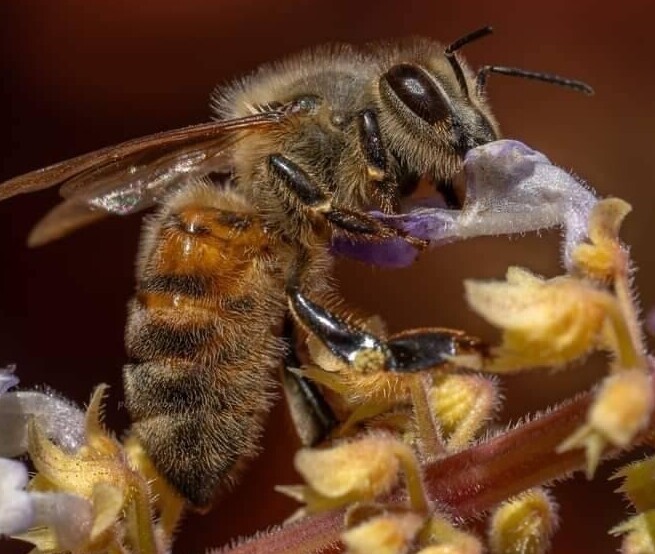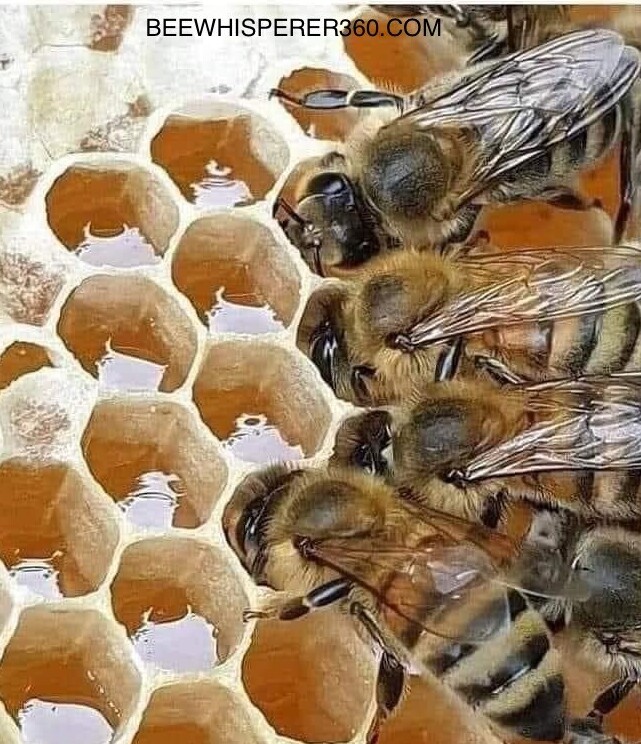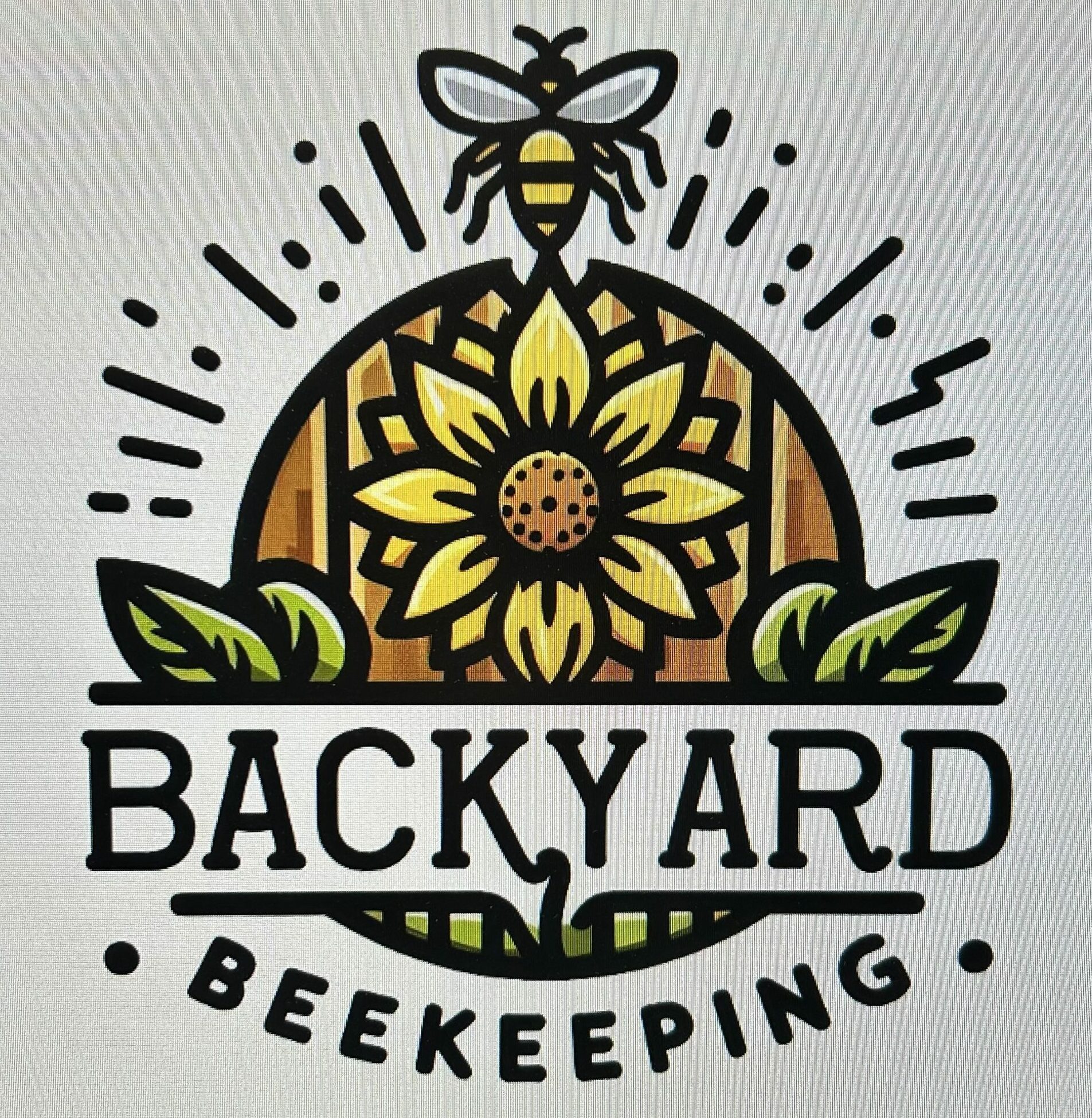Bees might be small, but their impact is huge on our planet. They play a key role in pollinating plants, which basically supports the entire food chain. Without these buzzing little guys, many plants wouldn’t be able to reproduce, and that would cause a cascade effect on the environment.

When bees pollinate, they’re like nature’s little gardeners. They help transfer pollen between flowers, which allows plants to produce fruits, nuts, and seeds. This pollination process is crucial for growing many of the foods we eat daily, like apples, almonds, and blueberries. Just imagine a world without these tasty treats. Kinda bland, right?
But it’s not just about food. Bees also contribute to the diversity and health of ecosystems. They’re vital for the survival of many plant species, which in turn, are homes and food sources for countless wildlife. That means bees play a part in keeping our planet’s ecosystems balanced and vibrant.
So, when you think about it, bees are at the heart of a lot of what makes our natural world tick. Sadly, bee populations are facing serious challenges, and understanding their importance is the first step toward protecting them. Stick around, and I’ll share some insights into how you can be part of the solution by stepping into the world of beekeeping.
Understanding the Current Bee Crisis
It’s no secret that bees worldwide are in trouble, but what exactly is causing their decline? You’d be surprised to know that it’s not just one thing, but a cocktail of challenges putting them at risk. Let’s break it down.
One major factor is habitat loss. Urbanization and agricultural expansion strip away the natural homes where bees thrive. They lose access to a variety of flowers, which can impact their health and ability to reproduce.
Then you have pesticides. These chemicals, particularly neonicotinoids, are deadly for bees. They affect bees’ nervous systems and can lead to mass die-offs. Even when they don’t kill outright, they can impair bees, making them less effective at pollination.
Climate change is another biggie. Shifts in temperature and weather patterns can disrupt bees’ usual routines. It affects when plants flower and ultimately messes with the bees’ food supply.
And, let’s not forget diseases and parasites like the infamous Varroa mite. These pests weaken bee colonies by spreading viruses and depleting their numbers.
A world without bees can lead to ‘pollination problems.’ That means many plants can’t bear fruit, grasslands could fail, and a bunch of your favorite foods could become rare or pricey. The impacts extend beyond just our diet, threatening plant and animal habitats worldwide.
So, understanding these threats is key if we’re going to address the crisis. In the sections that follow, I’ll guide you through how beekeeping might just be a way to lend a helping hand.
Beekeeping: A Practical Approach to Bee Conservation
When it comes to giving bees a helping hand, beekeeping is an outstanding way to make a real difference. By becoming a beekeeper, you directly support the local bee population. How? Well, keeping bees provides them a safe haven where they can flourish without the constant threats they face in the wild.
Beekeeping isn’t just about donning one of those cool suits and collecting honey. It’s about creating an environment where bees can do what they do best: pollinate. By setting up a hive, you’re essentially setting a buffet for local flowers, which strengthens plant biodiversity. It’s like being a guardian of your own mini-ecosystem.
Getting started with beekeeping can sound daunting, but trust me, it’s more accessible than you might think. Many local clubs offer beginner workshops to teach you the ropes – from setting up hives to managing your first colony. They even cover how to choose the right location for your hive, ideally in a spot with plenty of sunlight and near flowering plants.
Besides all the environmental perks, you’ll get to enjoy some sweet, sweet honey. But remember, while the honey’s a delicious bonus, the primary goal here is to support bee health.
This chapter of the beekeeping journey serves as a win-win. The bees get a safe place to thrive, and we all get a step closer to a healthier planet. So why not roll up those sleeves and consider giving beekeeping a try? It’s a practical approach to conservation, and each hive is a new step forward for the bees and our environment.
The Benefits of Becoming a Beekeeper for Local Ecosystems
Beekeeping does wonders for local ecosystems. When you manage a hive, you’re actually boosting pollination efforts in your area. This enhanced pollination leads to healthier and more productive local flora, which in turn benefits the entire ecosystem.
One of the coolest things about bees is their ability to increase the genetic diversity in plants. By pollinating various plant species, bees support the growth of stronger, more resilient plants. This resilience is important because it means local ecosystems can better withstand pests, diseases, and changes in climate.
Beekeeping also positively impacts local fauna. More flowering plants and fruits mean more food resources for other wildlife, including birds and small mammals. It’s all one big interconnected web.
By setting up hives, you’re encouraging a kind of natural chain reaction. Your local environment becomes more balanced and sustainable as plant and animal populations grow and thrive together.
It’s fascinating how introducing something as small as a beehive can have such a expansive effect. Each beekeeping effort contributes significantly to maintaining ecological harmony in your area.
Beyond the Hive: How Beekeeping Connects Communities
Beekeeping isn’t just about the bees – it’s a fantastic way to bring people together. Tending to hives can spark new friendships and collaborations within your community.
Getting involved with local gardening clubs or farmers’ markets can open up opportunities to share knowledge and resources. You might find yourself comparing notes with fellow beekeepers or trading tips with local farmers about boosting crop yield.
Community workshops are a great platform to spread the buzz about bees and conservation. Hosting a beekeeping session or even a casual ‘meet the bees’ day can educate and inspire others to appreciate the importance of bees.
In some areas, beekeeping co-ops are forming, allowing people to pool resources and support one another. These networks are invaluable, providing help with everything from hive maintenance to advice on sustainable practices.
Ultimately, beekeeping fosters a sense of belonging and shared purpose. When neighbors band together to protect and nurture bee populations, stronger community bonds form, making it a hive of activity and collaboration.
Navigating the World of Beekeeping: Tools, Techniques, and Tips
Stepping into beekeeping means gearing up with the right stuff and getting a handle on some basic skills. First thing you’ll need is the proper equipment, like a bee suit for safety, a hive tool to handle those sticky frames, and a smoker to calm the bees during inspections.
Understanding bee behavior is key. Bees are incredibly organized creatures, each with a role inside the hive. Getting to know the queen, workers, and drones helps in managing the hive more effectively. There are tons of resources and books out there that break down bee society, which is both fascinating and super useful.
Managing a hive also involves a bit of routine care. Simple tasks like regular checks on hive health and ensuring they have enough space to grow can make a huge difference. It’s a bit like tending a garden – you need to nurture your hives consistently.
Encountering challenges is part of the journey. Sometimes you’ll face diseases or pests that threaten your bees. This is where local beekeeping groups come in handy. They often share insights on dealing with issues like Varroa mites. Plus, online forums are a goldmine for troubleshooting advice.
Becoming a beekeeper isn’t just a hobby, it’s a commitment to learning and adapting. With practice and a bit of patience, you’ll find yourself more in tune with nature, all while making a positive ecological impact.
Addressing Common Concerns and Misconceptions about Beekeeping
Worried about bee stings? That’s a pretty common concern, but with the right gear and a calm approach, the risk is pretty minimal. With time, you’ll learn how to calmly work around your bees without causing them stress and they’ll start seeing you as part of the landscape.
Some folks think beekeeping might trigger allergies. In most cases, people are more allergic to wasps. However, if you have severe allergies, it’s wise to consult with a medical professional before diving into beekeeping.
The safety extends to your neighbors too. Ensuring that your hives are placed in a good spot – away from high-traffic areas – keeps everyone happy.
Conclusion: The Bright Future of Beekeeping for Our Planet

Beekeeping offers a bright beacon of hope for both bees and the environment. By embracing this practice, not only are you supporting the creatures that play a pivotal role in our ecosystem, but you’re also taking a significant step towards sustainable living.
We’ve explored the challenges bees are facing and how their decline could impact the world around us. With beekeeping, you’re making a direct contribution to reversing these worrying trends. It’s a rewarding journey, one where every hive helps bolster the local ecosystem and encourages biodiversity.
You have the power to influence future generations by sharing the importance of bees and fostering a love for nature in children and adults alike. Engaging with schools or community groups about the wonders of beekeeping can spark curiosity and inspire others to take action.
If you’ve ever thought about giving back to the planet, beekeeping is a practical way to do that. Getting started is more accessible than you’d think – local resources, community support, and a little dedication are all you need to begin.
Every new beekeeper strengthens a global movement working towards environmental balance. Whether you’re in it for the honey, the love of bees, or the ecological benefits, stepping into this world is an investment in our shared future.
